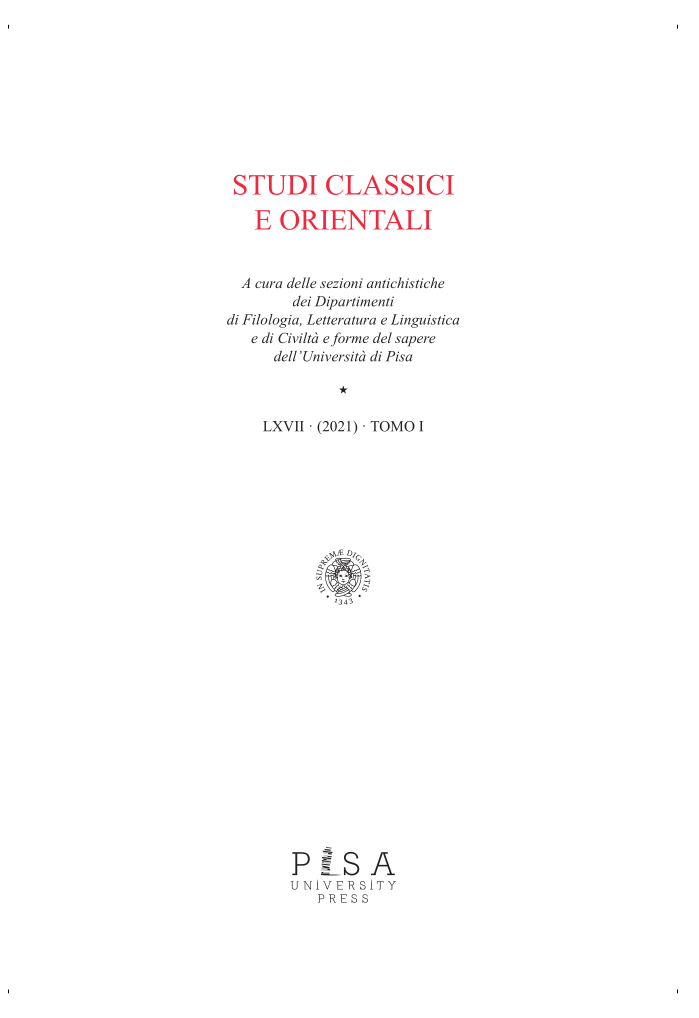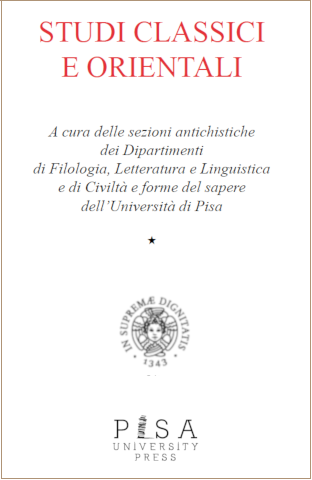Inaccusatività e natura agglutinante. Un’ipotesi sul proto-indoeuropeo, una realtà del sumerico
Parole chiave:
Inaccusativity, Phenomenology of ergativity, Agglutinative nature, Transparency and evocativeness of the languageAbstract
With arguments in favour of the inaccusativity of the Indoeuropean language, we hypothesize a prehistoric inclination common to that ergativity which is physiologically extinguished in the choice of a nominativeaccusative asset, as is shown by the Mesopotamic languages and Egyptian. Thus we look at the forma mentis and the Weltanschauung which lead to an ergative choice (as, for example, in the case of the non-reifying attitude of the gnoseological approach) and which concludes the net distance that separates the inaccusative choice from the nominative- accusative asset. If to the inaccusative asset, which may be hypothesized for the Indoeuropean, we associate the agglutinative nature and the word-phrase which may both be hypothesized for the Indoeuropean, then in such a ‘reconstruction’ of the Indoeuropean not only are traces discerned such as the phenomenology of ergativity but also the transparency and evocativeness of the language. These last traces find, for instance, confirmation in the phonic features which are intrinsic to the Vedic texts and which are traces of a precedent situation, witnessing and celebrating a live and vital transparency and evocativeness of the language shying away from the opacity of the word that will become a prerogative in subsequent languages.



